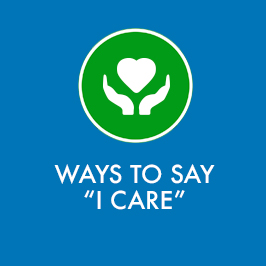
About Grief
Grief is a normal and natural reaction to death. Love and grief are inseparable – they are yin and yang – so when we lose those we love we experience grief. It is a normal response and it has been a part of the human condition since the beginning of time. You can see grief in every culture. Some cultures embrace this experience more directly than others. Some, unfortunately, sweep this experience under the rug or pathologize it as an abnormality.
Tips / Support

Grief in the Workplace
Talking about death and grief in the workplace is challenging for many, but creating a supportive environment not only benefits those who are grieving, but your organization too.
AUDIENCE: Organizations, Managers, Administrators

Mother’s & Father’s Day
Mother’s & Father’s Day is often a painful reminder, but with planning you can set you and your family up for meaningful time together.
AUDIENCE: Parents, Caregivers

Navigating the Holidays
The holidays can be a painful and isolating time for grieving families. With forethought and planning, you can surround yourself with the right people and continue creating good memories.
AUDIENCE: Parents, Caregivers

14-Day Holiday Gratitude Journal
Holiday traditions can be sources of joy for many families; they can also be triggers that make the holidays even more difficult when grieving a loss.
AUDIENCE: ALL

Holiday Rituals and Traditions
Practicing gratitude can improve mental health, untangle us from toxic emotion patterns, bring us closer to the ones we love, and build overall resilience.
AUDIENCE: Teachers, Families, Caretakers
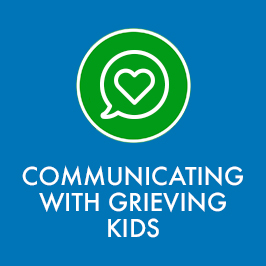
Communicating With Grieving Kids
Rituals and traditions serve a variety of purposes in our lives. Rituals and traditions can be a powerful tool for creating shared experience, making space to slow down and process, and building meaningful memories and connections.
AUDIENCE: Teachers, Families, Caretakers
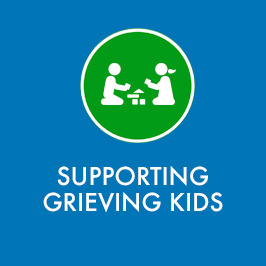
Supporting Grieving Kids
Kids think, act, and communicate differently than adults. Keeping this in mind will help adults be more prepared to communicate effectively with a grieving child.
AUDIENCE: ALL
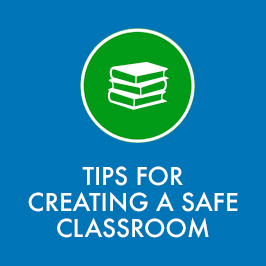
Tips For Creating A Safe Classroom
What is the best way that I can support a grieving child? What should I say and do? The first step is to be prepared.
AUDIENCE: ALL
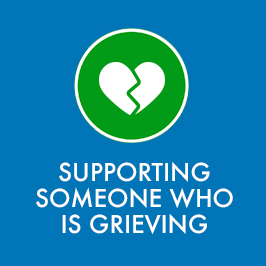
Supporting Someone Who Is Grieving
Creating a safe space for students to share about the adversity and challenges they face will help them feel comfortable talking about death and grief. AUDIENCE: Teachers, administrators, counselors, nurses, and student advocates. When someone is hurting we want to help. Sometimes, what we think is helpful is actually very unhelpful.
AUDIENCE: ALL
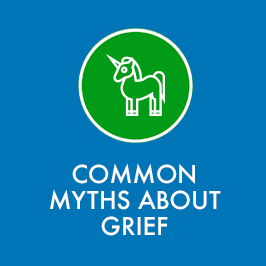
Common Myths About Grief
Myths often make our response to death and grief ineffective, misguided, and make this difficult time of life even harder.
AUDIENCE: ALL
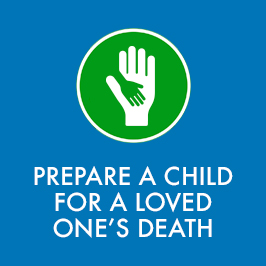
Prepare A Child For A Loved One’s Death
While knowing that someone might die is not easier or harder than being surprised, preparing a child is beneficial as they navigate this experience.
AUDIENCE: ALL
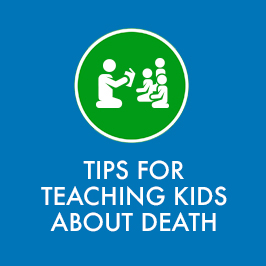
Tips For Teaching Kids About Death
Give children the tools they need to navigate the subject of death and prepare them for when a death inevitably happens in their life.
AUDIENCE: Parents, Teachers, Adults, Caretakers
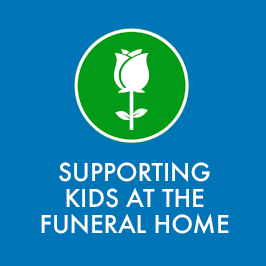
Supporting Kids At The Funeral Home
The funeral is often a blur of activity and people. Kids are frequently forgotten in the midst of it. Planning ahead is important to facilitate your child’s grief experience in an effective way.
AUDIENCE: Parents, Caregivers, Funeral Directors, Clergy
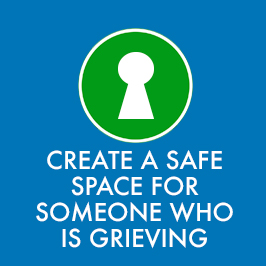
Create A Safe Space For Someone Who Is Grieving
When we’re empathic and understanding of someone’s needs, then we can provide a safe space for those hurting to be authentic and vulnerable.
AUDIENCE: Adults, Teachers, Friends, Caretakers
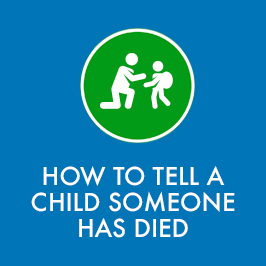
How To Tell A Child Someone Has Died
When it comes time to talk about death with a child, adults can often feel helpless. Here are simple ways to start the conversation.
AUDIENCE: Parents, Teachers, Adults, Caretakers, Clergy
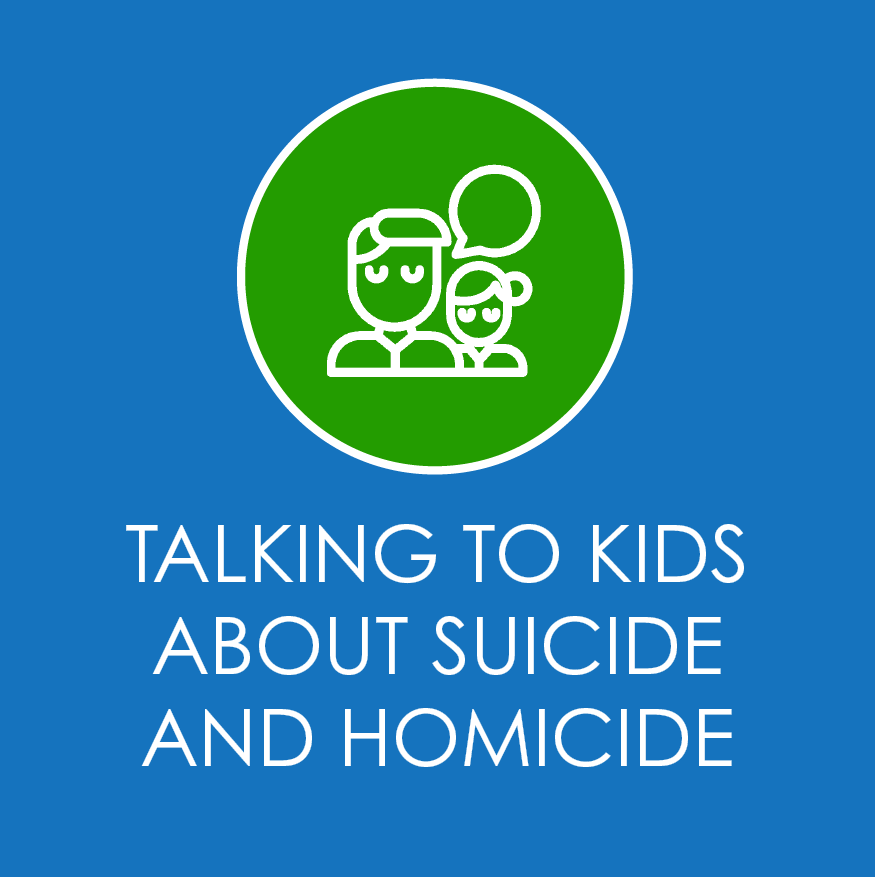
Talking To Kids About Suicide and Homicide
Suicide and homicide can be difficult topics. This tip sheet will give parents, caregivers, and teachers, tips about how to begin the conversation.
AUDIENCE: All

Effective Communication Tips
An effective communicator is an effective listener. In order to effectively listen, we need to be self-aware about our intention.
AUDIENCE: All
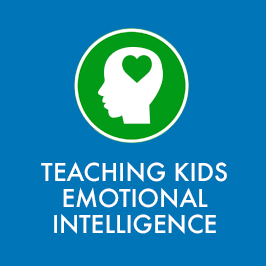
Teaching Kids Emotional Intelligence
Emotional Intelligence (EQ) can be taught. EQ starts with self-awareness around thoughts, feelings, and strategies for expression.
AUDIENCE: Teachers, Parents, Caretakers
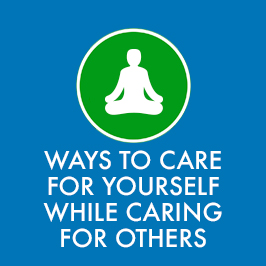
Ways To Care For Yourself While Care For Others
Grief is an emotional, intellectual, spiritual, and physical experience. When we support people who are grieving, it has an impact on us. AUDIENCE: Adults and Caretakers
Find Support In Your Community
Find local programs for grieving children, teens and their families, by state and city.

Education
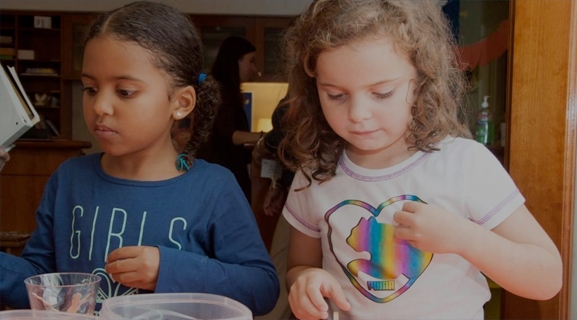
Want to learn more?
Check out our Education Page to learn about our educational opportunities.



